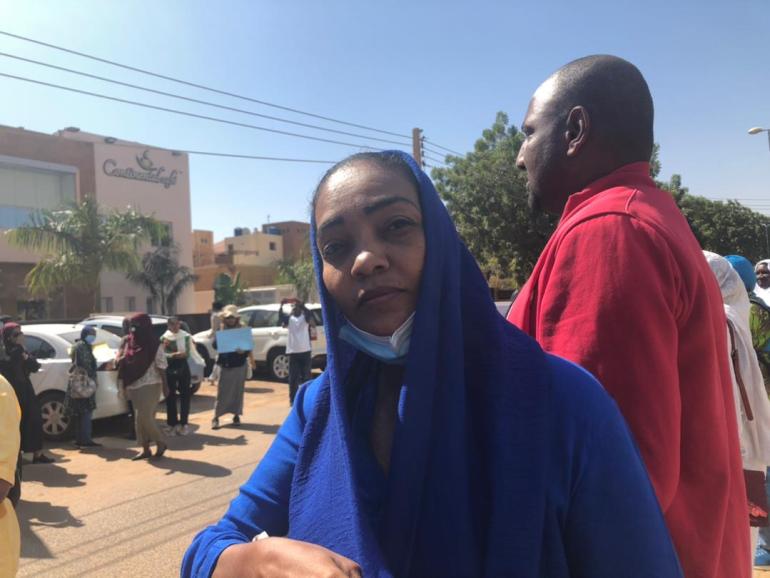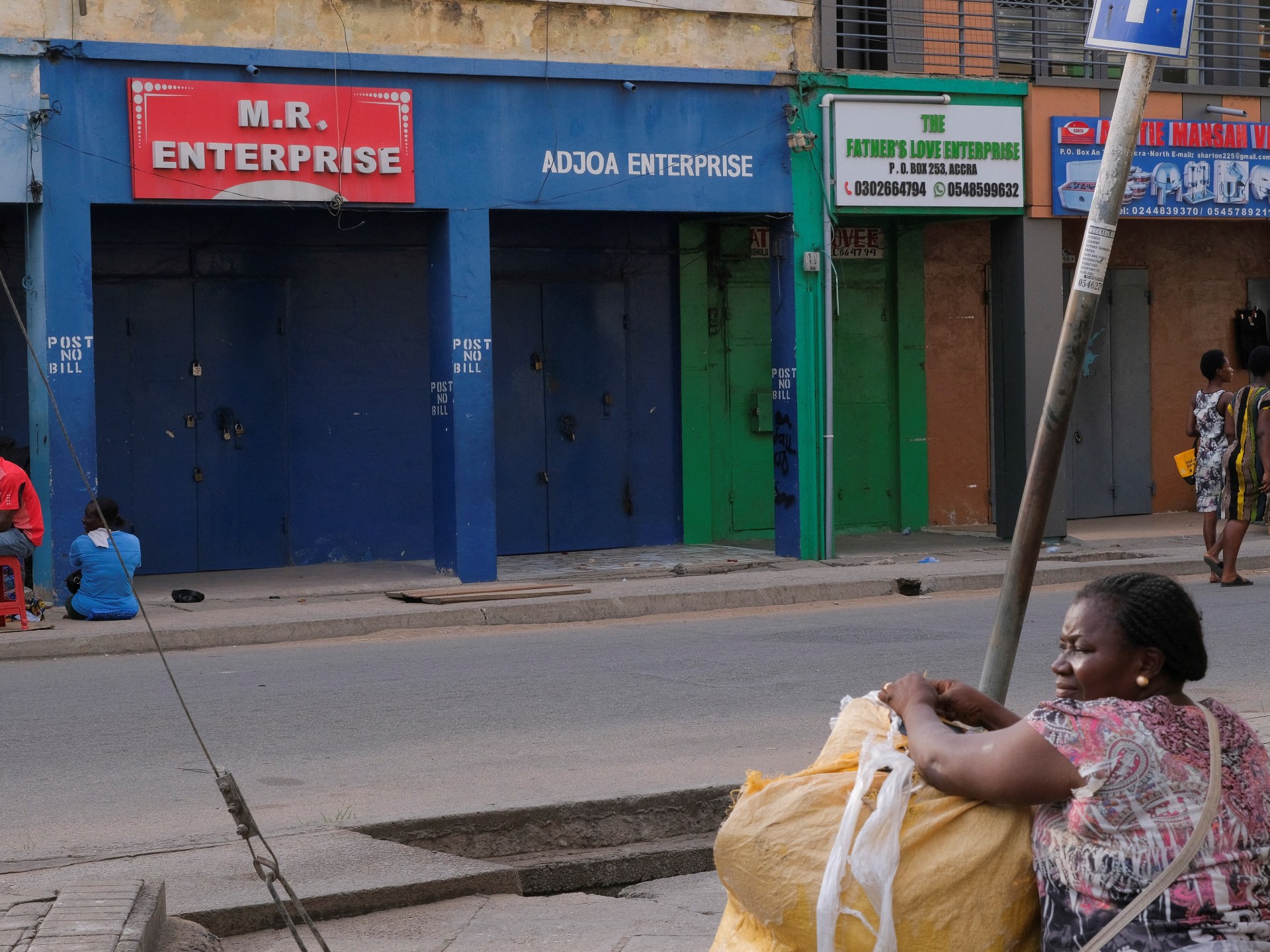‘They won’t break us’: Sudanese protesters decry sexual attacks | Women News
Khartoum, Sudan – Hundreds of women have taken to the streets in and around Sudan’s capital, Khartoum, to protest against sexual violence and harassment, including alleged rape by security forces during a pro-democracy protest.
The United Nations said this week security forces were alleged to have raped or gang-raped at least 13 women and girls in Sunday’s mass demonstration outside the presidential palace in Khartoum.
Suliema Ishaq, head of the gender-based violence unit at the Ministry of Social Development, told Al Jazeera that eight women aged between 18 and 27 had approached her department to get treatment.
“Two of them were treated within the 24 hours and six others came later, but I believe the number is higher than that,” said Ishaq.
Doctors also said at least two people were killed by security forces during Sunday’s rally against a military coup in October and a deal last month to reinstate Prime Minister Abdalla Hamdok to office.
 Sudanese women rallying in Khartoum’s twin city Omdurman [Ebrahim Hamid/AFP]
Sudanese women rallying in Khartoum’s twin city Omdurman [Ebrahim Hamid/AFP]The protesters on Thursday delivered a memorandum to the Khartoum office of the UN’s High Commissioner for Human Rights, demanding an investigation into the cases of sexual and physical violence. More than 40 rights organisations and so-called “resistance committees” – neighbourhood groups with a horizontal command structure that have been leading Sudan’s pro-democracy movement – signed the document.
 Shaihinza Jamal [Zeinab Mohammed Salih/Al Jazeera]
Shaihinza Jamal [Zeinab Mohammed Salih/Al Jazeera]“We are here to put pressure so that this could stop happening,” Shaihinza Jamal, a resistance committee member and prominent figure in the women’s rights movement in Sudan, told Al Jazeera at the protest.
“We will not allow such things ever to happen, and we can stop them.”
The 46-year-old, wearing a blue dress, was at the helm of the demonstration, chanting different slogans in praise of the women. Other protesters were repeating, “They won’t break you.”
Similar protests took place in Omdurman, the twin city of Khartoum on the west bank of the Nile River, as well as in North Khartoum.
Dozens of rapes were also reported in June 2019, when security forces violently dispersed a pro-democracy sit-in outside the military headquarters in Khartoum. More than 100 people were also killed, according to doctors, and survivors recounted the security forces, mostly made up of members of the Rapid Support Forces, throwing bodies into the Nile River nearby.
Rights groups also have said rape and sexual violence have been used as a weapon of war in the conflict in Sudan’s Darfur region.
Sudanese authorities have not commented on this week’s allegations, but several Western states on Thursday urged them to “carry out a full and independent investigation”.
In a joint statement, Canada, the European Union, Norway, Switzerland, the United Kingdom and the United States also condemned the use of sexual violence “as a weapon to drive women away from demonstrations and silence their voices”.
Statement on Sexual Violence Against Women During Protests pic.twitter.com/Q8oS4vJ5Kb
— UK in Sudan ?? (@UKinSudan) December 23, 2021
Sudanese women were a driving force during the months-long popular protests that led to the removal of longtime ruler Omar al-Bashir in 2019 and a subsequent power-sharing agreement between generals and civilians.
They have also taken part en masse in the recent demonstrations denouncing at first the coup and then the military’s deal with Hamdok, whom pro-democracy protesters have accused of “betrayal”.
But many women said they often have to overcome family pressures to be able to add their voices to the movement.
Muzan Alneel is an activist who was arrested alongside her husband and sister during anti-Bashir demonstrations in 2018. She said many detained women were more afraid of their relatives than the security forces because, when they would return home after being released, they would be punished and prevented from going out again.
Other protesters also said they had to fight for their right to demonstrate.
“My father and brothers are more open-minded, but my husband doesn’t let me go out all the time, so I’ve missed many of the protests and processions,” one mother of three girls said at Thursday’s rally in Khartoum.
She added, “Whenever my daughters and I want to go out, we have to negotiate our right. We work more the night before at the house and leave him food and clean the house and everything else – it’s not easy for us at all.”




